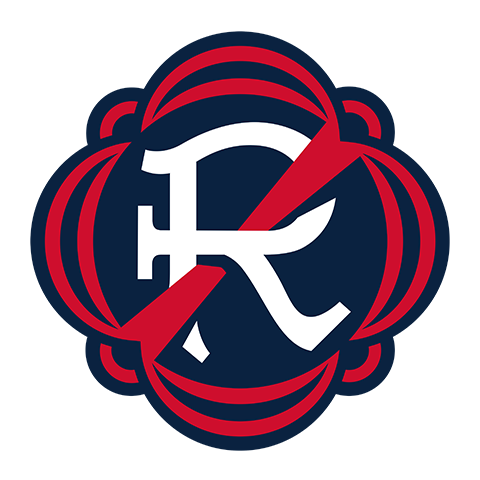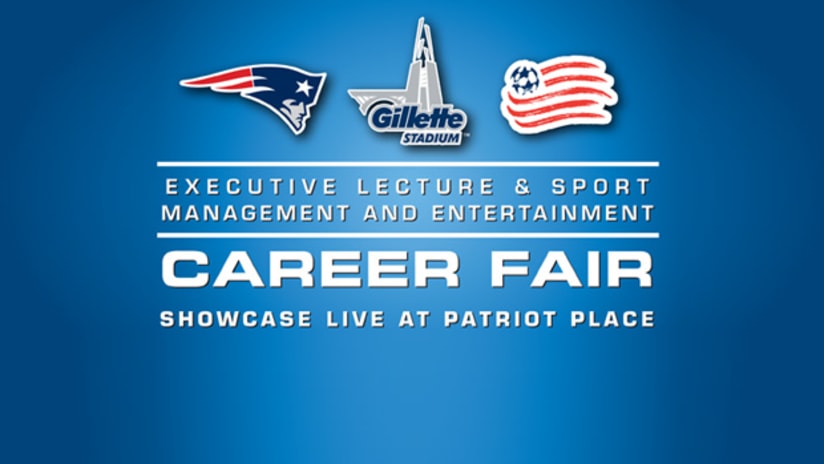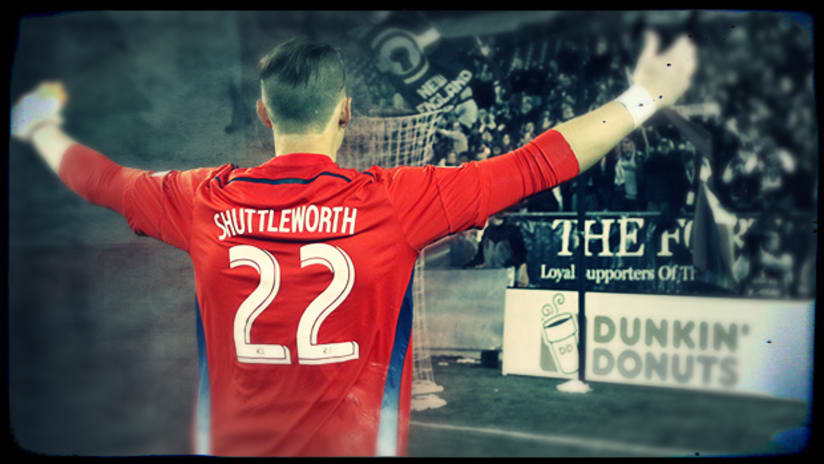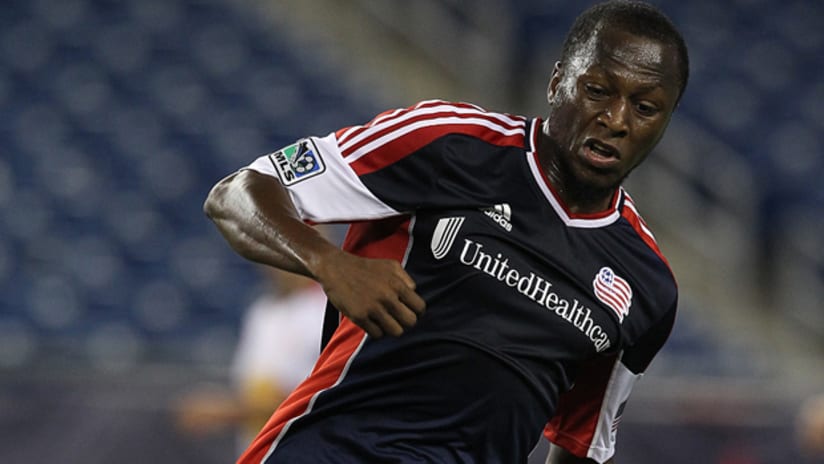FOXBOROUGH, Mass. – Are you interested in a career in sports but might not have the requisite skills to become a professional athlete? Welcome to the club! And listen up.
This Saturday – prior to the home opener against Sporting Kansas City – the Revolution will host the 2013 Executive Lecture & Sports Management and Entertainment Career Fair at Showcase Live at Patriot Place. It’s the place to be for aspiring sports business professionals and you can find full details HERE.
With Saturday’s event in mind, we thought it would be beneficial to provide a bit of insight from some of those professionals currently in the field, specifically right here with the New England Revolution.
Brian Bilello, President
Education: MIT (B.S. in Chemical Engineering)
First Job in Sports: Director of Quality and Operations Control, Gillette Stadium
When did you know you wanted to work in sports?
“I loved sports my entire life but didn’t know that I could make a career out of it until I was working in management consulting. We had a professional sports team as a client and we helped them with some analytics related to their draft. After that project I was hooked. I quit my job and started my own business in sports, which eventually led to me getting a job with the Kraft Sports Group.”
What’s one piece of advice you’d give to aspiring sports business professionals?
“Before you jump into a career in sports, figure out what type of role you would most enjoy. If you like writing, go for something in communications. If you like sales, go for a sales role. You won’t be happy or have success unless you are working in an area of sports that you enjoy. Just knowing that you like sports isn’t enough.”
Cathal Conlon, Director of Marketing
Education: Liverpool John Moores University (B.S. in Sports Science)
First Job in Sports: Caddie Master, Brae Burn Country Club
When did you know you wanted to work in sports?
“Literally from the moment I realized I wasn’t a good enough player to make a career as an athlete.”
What’s one piece of advice you’d give to aspiring sports business professionals?
“Try to experience as many different aspects of the sports business as possible. EVERYTHING is valuable.”
Tim Crawford, Analyst
Education: UConn (B.S. in Mathematics with a minor in Statistics)
First Job in Sports: This one!
When did you know you wanted to work in sports?
“I have known I wanted to work in sports for as long as I can remember. As a kid, I used to draw logos for made-up and real teams. I used to make up statistics and pretend games. After figuring out I wasn’t a very good athlete (that didn’t take long either), I knew I had to find somewhere else to get into the industry. I never really thought my chances would be very good though.”
What’s one piece of advice you’d give to aspiring sports business professionals?
“Apply. It’s easy to convince yourself you aren’t qualified for something, or that there are plenty of people as good as you, but it doesn’t take much effort to apply. Let the people hiring decide if you are good enough, with yourself trying to convince them otherwise of course.”
Jason Dalrymple, Digital Content Manager
Education: Suffolk University (B.S. in Communications/Advertising)
First Job in Sports: Web Content Master, Kraft Sports Group
When did you know you wanted to work in sports?
“Soon after transferring to Suffolk University in 1997, I immediately took a Sports Writing class (and a photojournalism class, to boot) and even though I was on my way to an Advertising degree, I knew sports was a path I'd definitely be open to pursuing on the creative side of things.”
What’s one piece of advice you’d give to aspiring sports business professionals?
“Be patient, persistent and make lots of contacts.”
Brad Feldman, Supervising Producer/Commentator for Revolution TV/Kraft Sports Productions
Education: The Johns Hopkins University (B.A.); Columbia University Graduate School of Journalism (M.S.); Northeastern University (M.B.A.)
First Job in Sports: Weekend Sports Anchor, KTEN-TV (Denison, Texas)
When did you know you wanted to work in sports?
“If you told me when I was an 11-year-old boy this is what I'd be doing as an adult I can tell you that boy would say things turned out beyond perfectly for this grown man. I worked in television production and journalism right out of college but kept gravitating back to sports, freelance field producing for sports TV and writing sports features for magazines. I made a career change at age 30 when enough people inside the business whose opinions I respected encouraged me to get in front of the camera.”
What’s one piece of advice you’d give to aspiring sports business professionals?
“The squeaky wheel certainly gets the grease, so be unflaggingly (but appropriately) persistent. But remember, if that wheel doesn't roll straight once it gets the grease they'll replace it right away in this business. So, make sure that once you get the job that you have the skills to get it done right.”
Jeff Lemieux, Staff Writer and Online Host
Education: Ithaca College (B.S. in Sports Information and Communications)
First Job in Sports: Sports Information Assistant, MIT
When did you know you wanted to work in sports?
“As early as fifth or sixth grade I can remember taking notes while playing FIFA video games. I’d then use those notes to write a game recap after I was finished. Something about conveying what had happened on the field in words always appealed to me. That was a pretty good indication that sports writing was the right path for me.”
What’s one piece of advice you’d give to aspiring sports business professionals?
“Get your resume into as many people’s hands as possible. My first job in sports came after I applied for an internship at MIT for which I didn’t even qualify. But my resume was passed on to the Sports Information Director, he happened to have an opening which I didn’t know about, and the rest is history.”
Marcus Myrick, Package Sales Manager
Education: UMass Amherst (B.S. in Sport Management)
First Job in Sports: General Assistant Facilities and Operations/Ticket Operations, University of Maryland-College Park
When did you know you wanted to work in sports?
“I don’t even remember since I’ve been involved in sport all my life. This has been my dream since I was eight years old reading the sports pages on the way to grade school.”
What’s one piece of advice you’d give to aspiring sports business professionals?
“If you want to really succeed in this business you have to have a passion for what you are doing. Passion is what separates those who just want a job in sport and those who want a career.”
Eddie Ross, Group Sales Manager
Education: UMass Amherst (B.S. in Sport Management)
First Job in Sports: Inside Sales Rep, New England Revolution
When did you know you wanted to work in sports?
“I knew I wanted to work in sports at the end of my freshman year of college when I found out that sport management existed as a field. Once I knew it was a serious industry and there was a real career path, I was in.”
What’s one piece of advice you’d give to aspiring sports business professionals?
“Do whatever you need to do to be known as a hard worker. Good things come to those who work hard, and if you do not have a great work ethic you will not give yourself the chance to be highly successful.”
Lizz Summers, Director of Communications
Education: Boston College (B.A. in Economics and Communications; M.B.A. in strategic marketing)
First Job in Sports: Marketing student assistant, Boston College
When did you know you wanted to work in sports?
“Pretty early – middle school maybe? I always used to read the Boston Globe’s sports section cover to cover – including the agate – and watch SportsCenter for hours in a row. I’d always watch every sport – no matter what – on TV. I don’t think I really realized what I wanted to do until college, though. After working one year in BC’s marketing office, I realized that sports information (which shared an office suite with marketing at the time) was exactly what I wanted to do. I started with the SID group the next year and have been building that as a career since.”
What’s one piece of advice you’d give to aspiring sports business professionals?
“Have a sound base of business knowledge. You may have responsibilities in a specific area, but no doubt your work will touch every other working unit of the organization. The more you understand how your department’s work fits into the organization’s operation and business objectives, the more successful you – and the organization – will be. And also develop interests outside of sports because the year-round attention on your job can take a lot out of you if you don’t have an outlet.”










